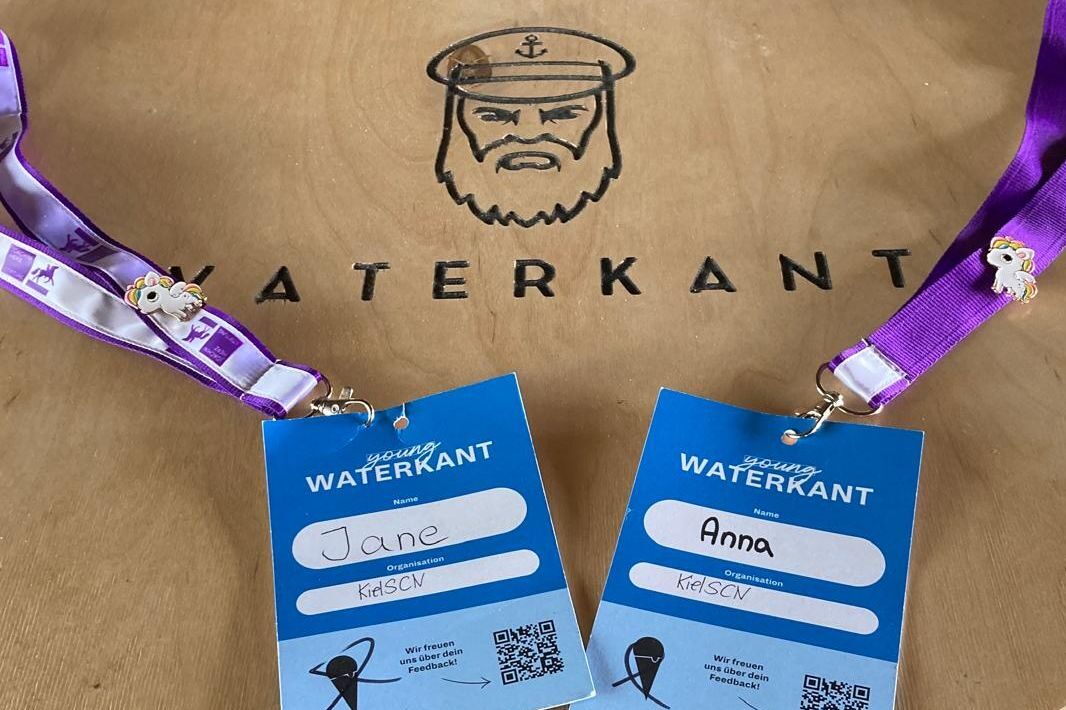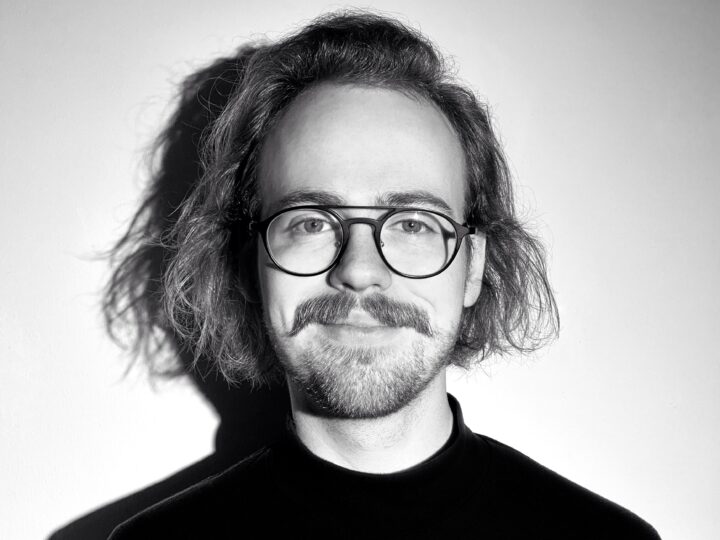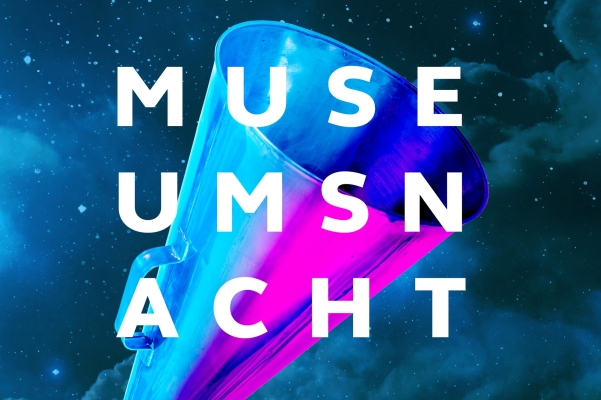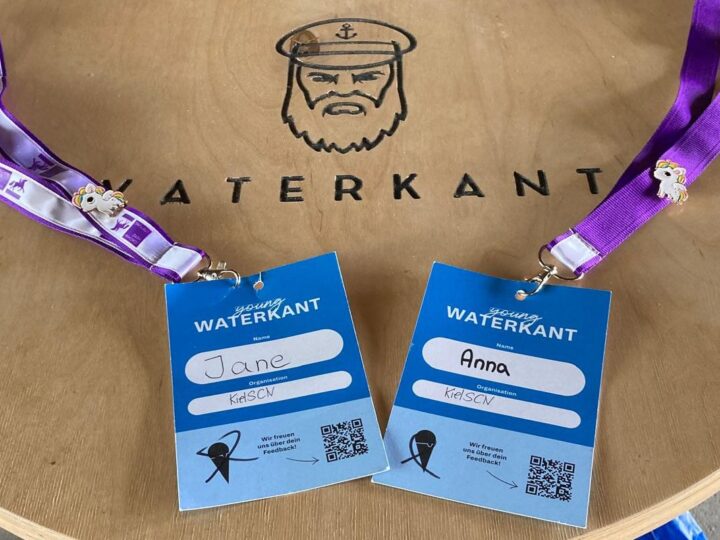KielSCN Workshop at the Young Waterkant Festival
Theater Meets Science: Identifying Misinformation in Social Media
What happens when we can no longer reliably distinguish scientific information from misinformation? This question was addressed by 45 school students at the Young Waterkant Festival on June 12 together with the two KielSCN doctoral students Anna Vollersen and Jane Martha Momme. In three one-hour workshops entitled “Theater meets Science”, improvisational talent was required as the participants immersed themselves in the world of science on stage.
For this purpose, the two workshop leaders had prepared various scenarios and role profiles. The randomly assigned roles came from the categories of science, science communication and conspiracy or historical personalities. For example, Albert Einstein and Marie Curie met on stage for a speed date. In another scenario, the workshop participants discussed whether flawed scientific discoveries should still be published.
Equipped with various props, the school students were then allowed to approach their roles and finally perform their plays in front of the group. Despite occasional initial inhibitions, creative performances about dealing with misinformation emerged, in which everyone participated brilliantly and had a lot of fun.
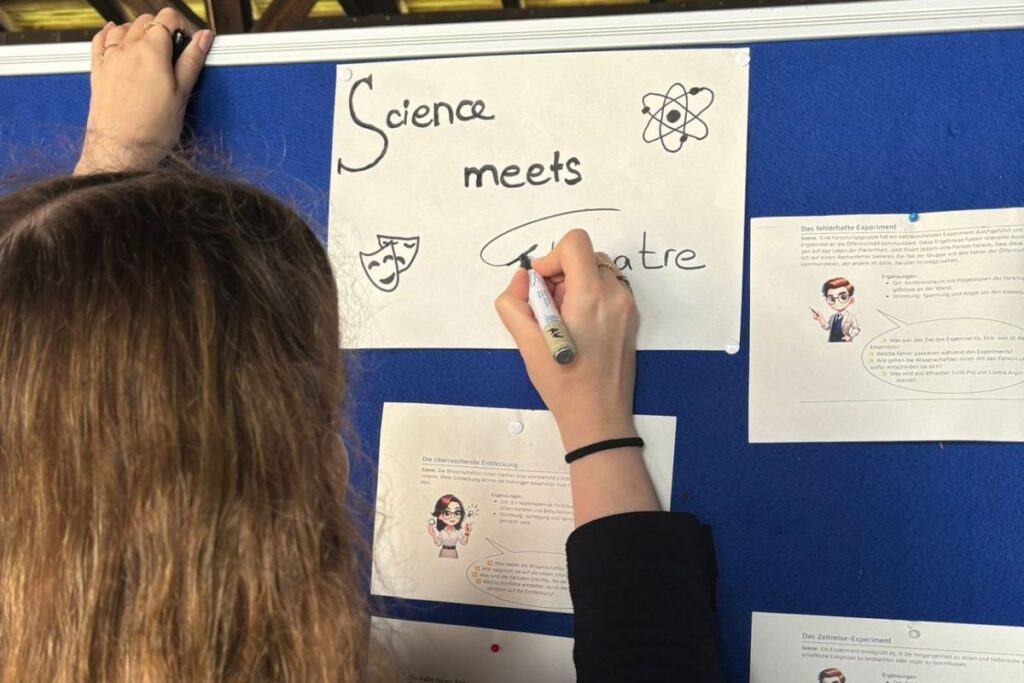
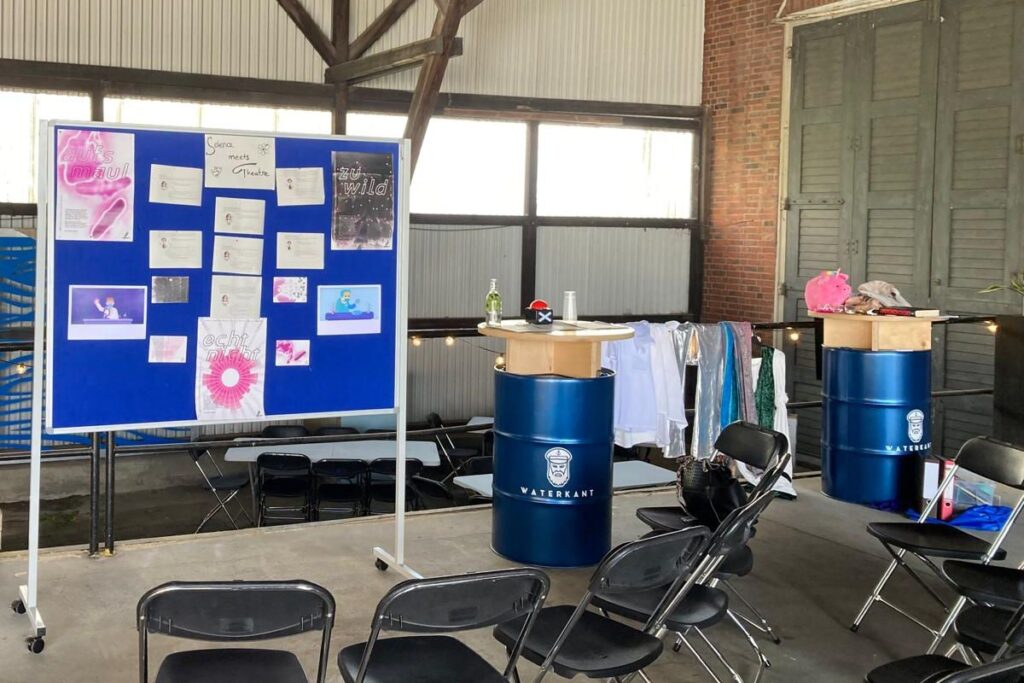
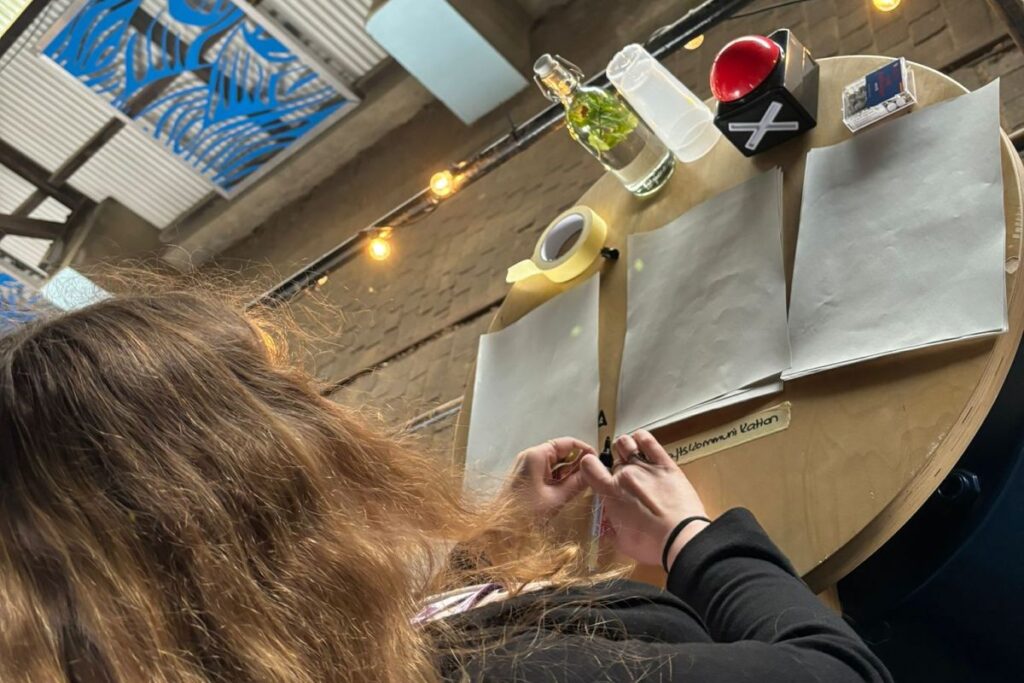
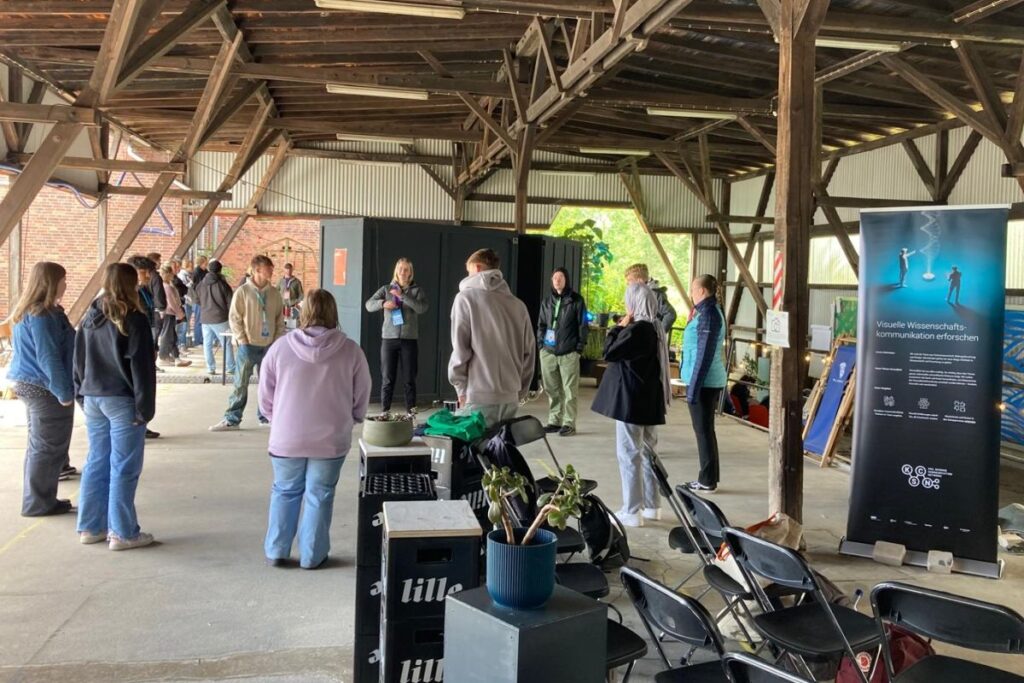
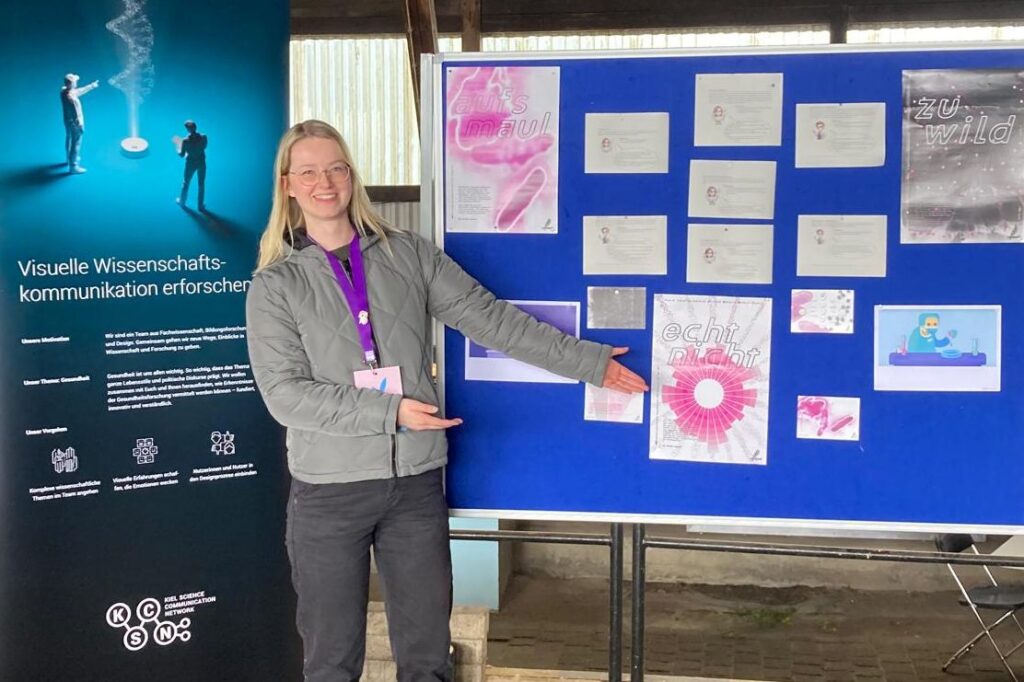
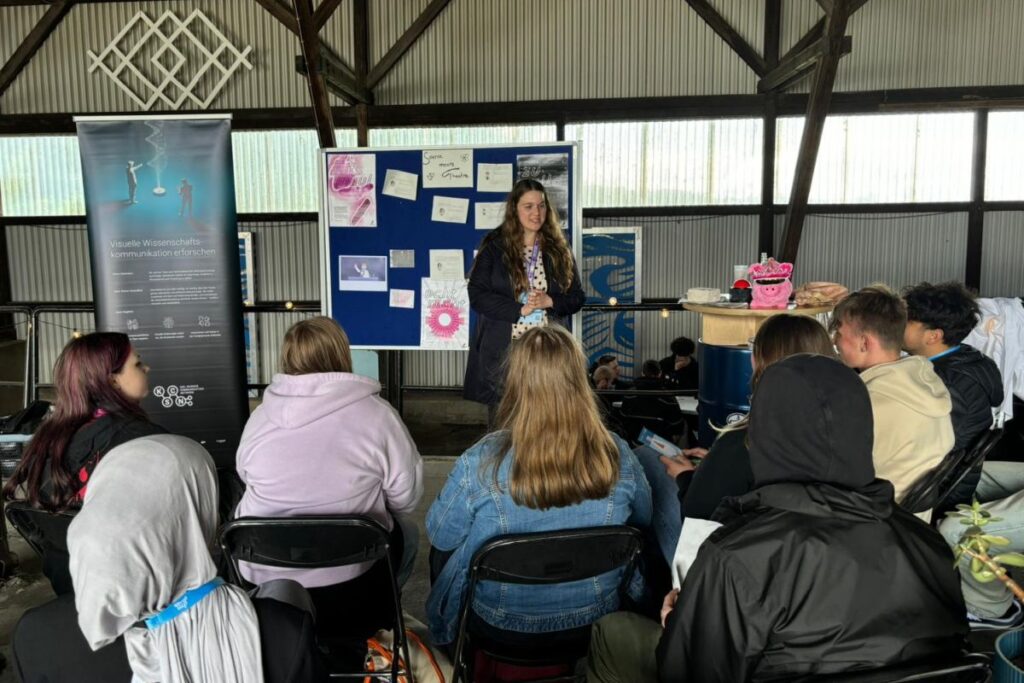
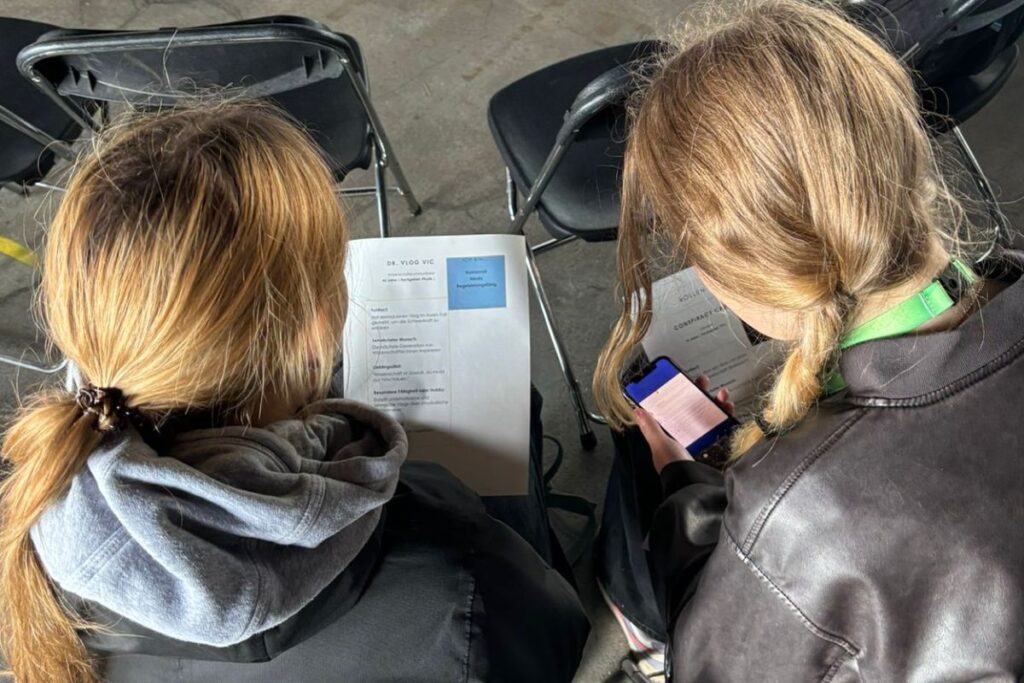
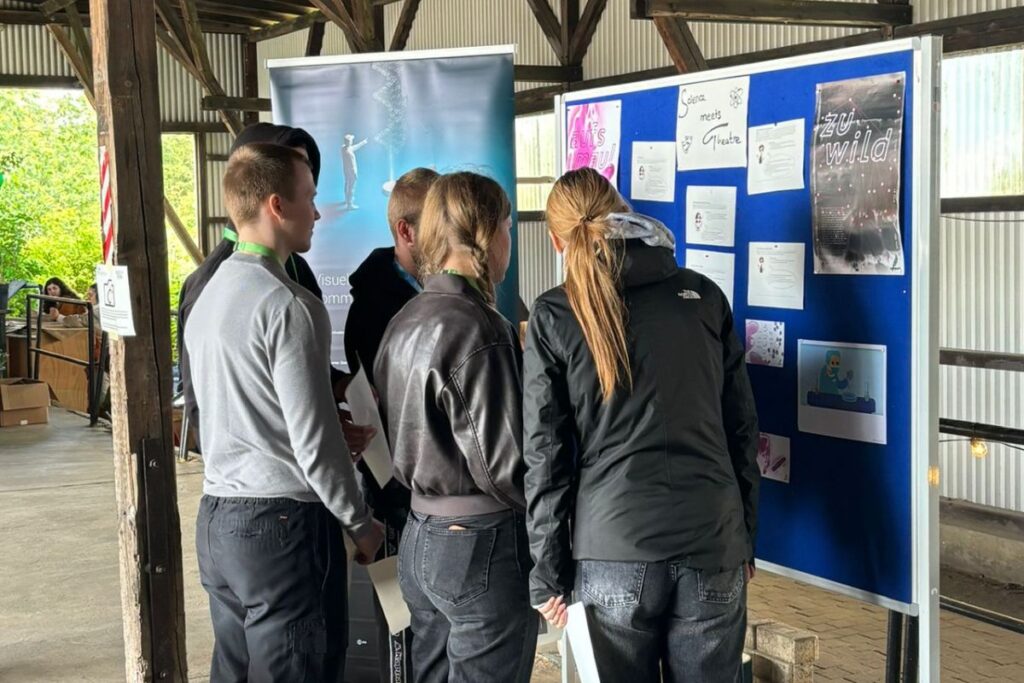
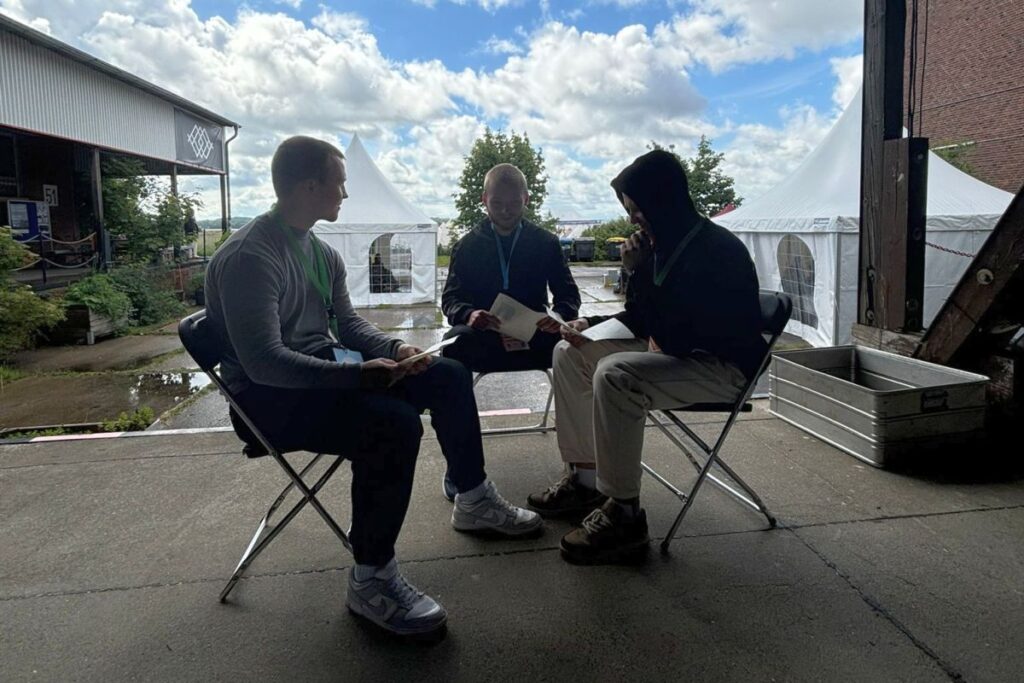
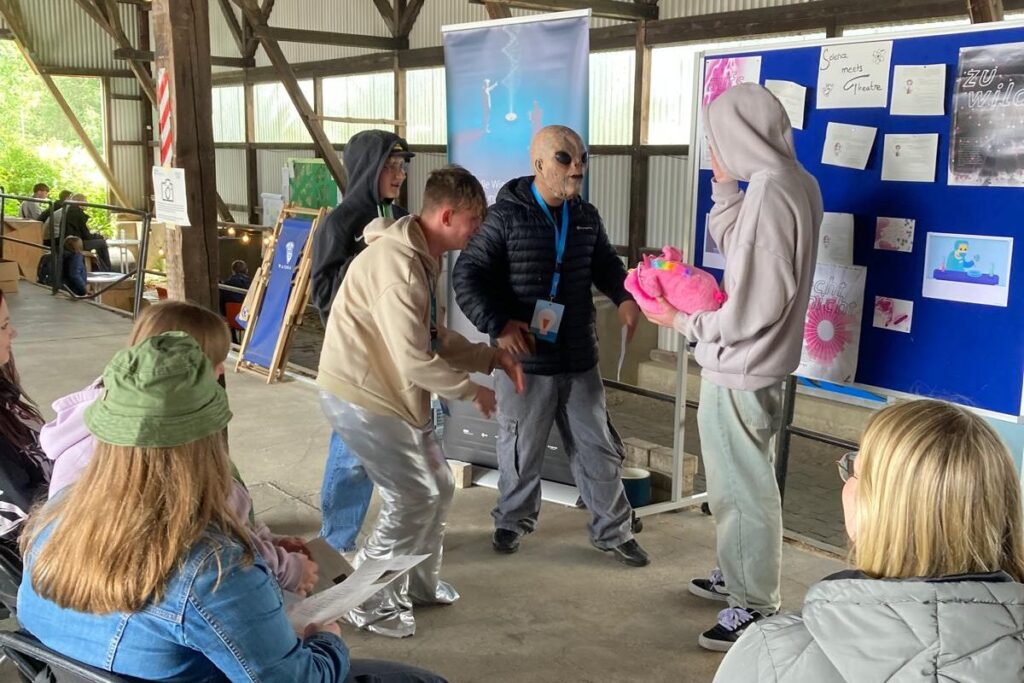
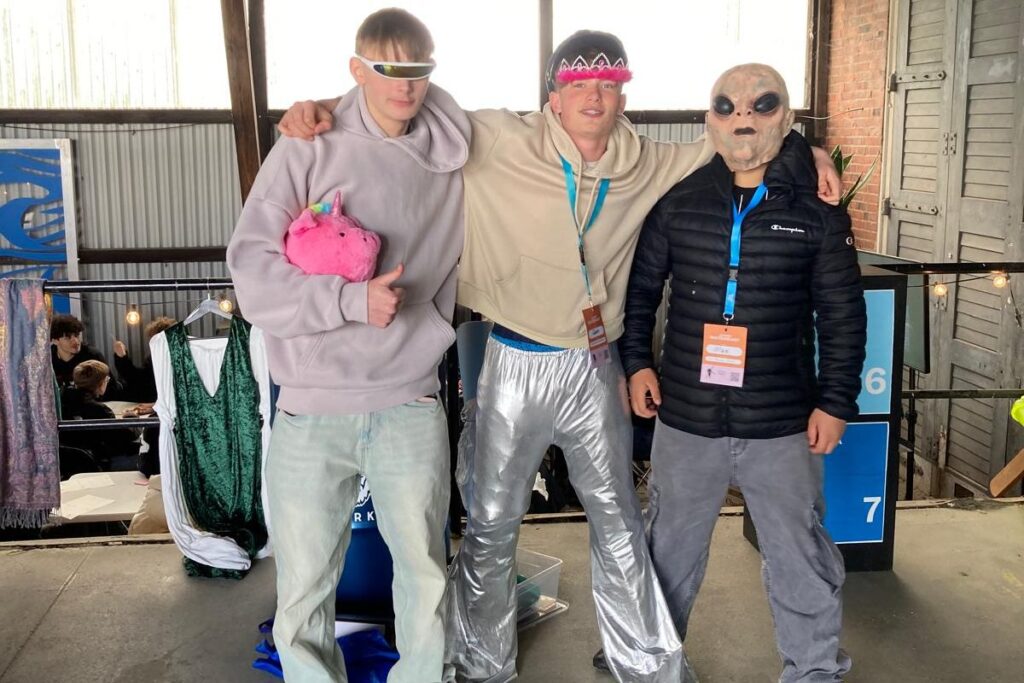
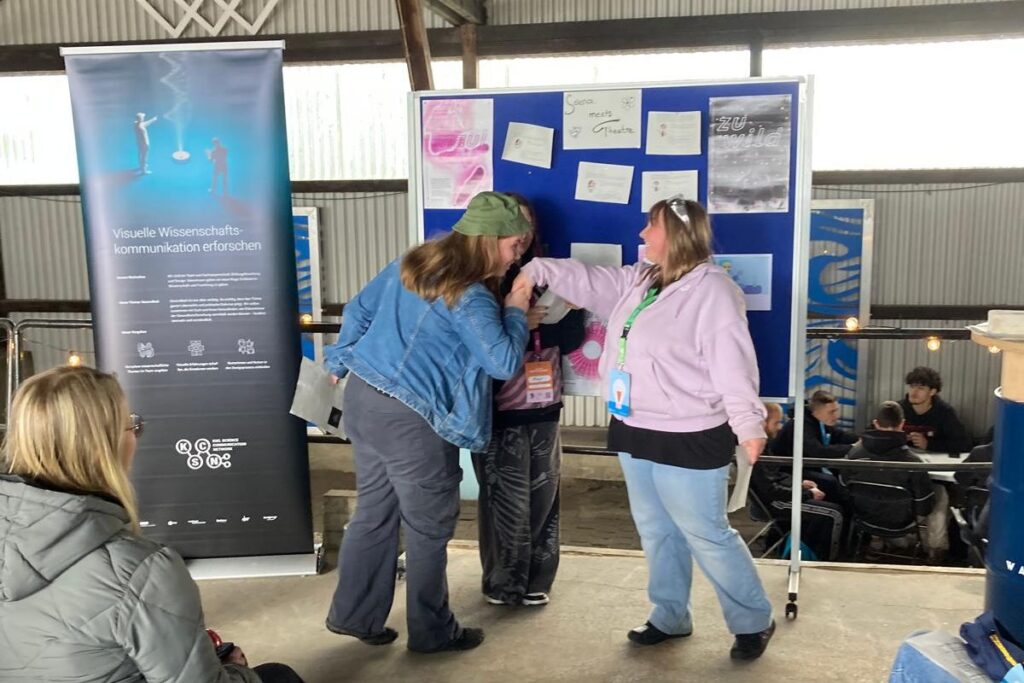
Fake News or Fact-based Information?
The workshop idea came about as part of the development of the “The Science Code” project. This is an interactive, multimedia play designed to enable pupils in grades 5 and 6 to differentiate between fake news and fact-based information. The performance also creates a meeting space in which young people can feel part of the scientific system, regardless of their socio-economic background. They experience that they are important for this – either as active participants or passive recipients.
They become part of the story of Dr. Empirica and Dr. Falsarius. While trying to crack the science code, the young people are asked to critically examine information in the context of health issues. They evaluate it in terms of credibility and trustworthiness in order to distinguish it from fake news. “This creative approach aims to overcome the traditional deficit model of science communication,” says Jane Martha Momme, who conceived the project together with Anna Vollersen. “At the same time, we use the play to bring process knowledge of the science system, a key element for social participation, into the classroom in a playful way.”
Application of Scientific Standards and Insights into Key Scientific Processes
The play is about the sudden disappearance of Dr. Empirica, who developed the Science Code. This is a mysterious method for debunking fake news. The sinister figure of Dr. Falsarius has kidnapped her in order to misuse the code for shady purposes. In the midst of this chaos, Dr. Empirica’s assistant bursts into the classroom and asks the students for their help: they must decipher the secret of the Science Code and thus save Dr. Empirica.
Anna Vollersen explains: “By solving puzzles and critically weighing up decisions, the participants learn the practical application of scientific standards. They also learn more about key processes in science through the conflict between Dr. Empirica and Dr. Falsarius. Only if they are able to distinguish trustworthy information from fake news can they follow the trail of the Science Code to Dr. Empirica.”
Theater Experience as a Dynamic, Participatory Event
The project idea is characterized by the combination of theatrical-pedagogical interaction and media integration. This sets the “Science Code” apart from conventional education and science communication formats. Through direct influence, the theater experience becomes a dynamic, participatory event for young people that not only promotes an understanding of the science system, but also offers a holistic experience of living democracy. It also conveys confidence in science and effective information processing. The project combines socio-psychological theories on fake news with concepts from educational research, in particular Nature of Science and science communication. For example, pupils learn that contradictory research findings do not necessarily undermine credibility, but are part of the scientific discourse.
From the Idea to the Performance
In a science pitch at the Leibniz Institute for Science and Mathematics Education (IPN), the “Science Code” came out on top and received a grant of 5,000 euros. However, as this only covers part of the estimated costs, the project managers are currently making adjustments to the concept in order to press ahead with implementation. The workshop at the Young Waterkant Festival was a step in this direction.
About the Young Waterkant Festival
At the Young Waterkant Festival, pupils from the 9th grade onwards from all over Schleswig-Holstein have the opportunity to get to know exciting start-ups, projects, associations and initiatives together with their teachers. The approximately 450 participants put together their day program from 90 exciting workshops according to their individual interests. In the workshops, people from the field provide insights into their innovative work and at the same time show how young people can become active themselves.
